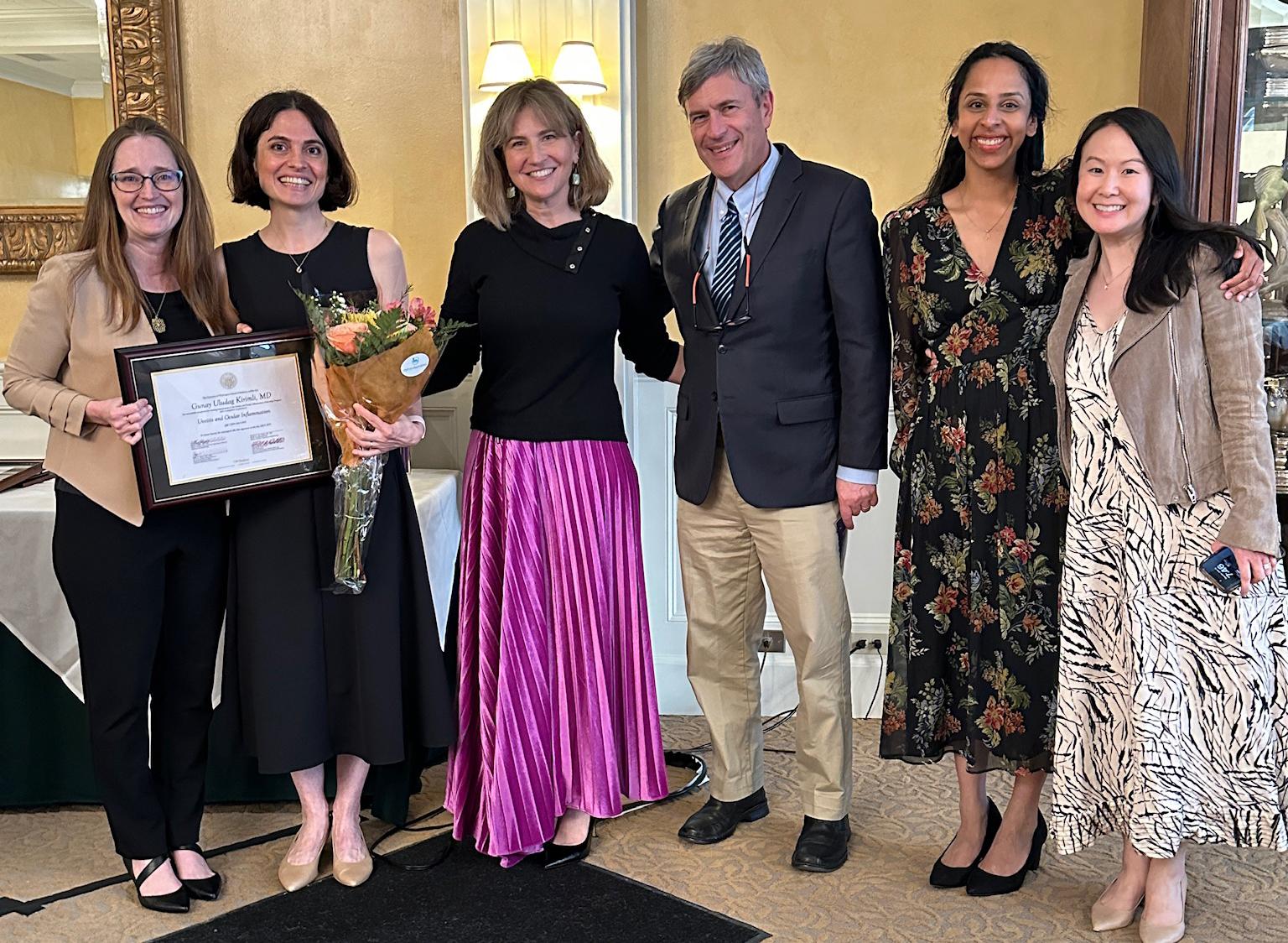
Patient Care Spotlight: Uveitis
The UW Department of Ophthalmology has one of the country's most extensive patient care programs for treating uveitis and ocular inflammation.
Uveitis is any form of inflammation that impacts the eye, whether from an infection or autoimmune disease that is limited to the eye or can affect other parts of the body.
“As ophthalmologists, uveitis is a rewarding career because it provides the opportunity to develop a long-term relationship with our patients as we work to determine the cause of their eye condition and how we are going to treat it,” said Associate Professor Kathryn Pepple, MD, PhD, Division Director of Uveitis.
Dr. Pepple is joined in the uveitis division by Bucey Chair and Professor Russ Van Gelder, MD, PhD, Professor of Clinical Practice Thellea Leveque, MD, MPH, Assistant Professor Miel Sundararajan, MD, and Assistant Professor Laura Huang, MD. Thanks to the generous support of the Gensheimer family, the uveitis division also trains one fellow each year. This year, Fatma Dihowm, MD, MS, is one of only about a dozen ophthalmologists training to become uveitis specialists across the entire United States.
“Patients can develop uveitis at any age. Here at UW we can provide care across their life span,” Dr. Pepple said. “ For our youngest patients, we are very fortunate to have a dedicated pediatric uveitis specialist in Dr. Laura Huang; very few places can provide this level of dedicated ultra-subspecialized care.”
Dr. Pepple said many patients will come to see them after noticing blurred vision or red eyes, and they will have been given something for pinkeye.
“If they don’t get better, they may see a comprehensive ophthalmologist, and when that treatment fails, they are referred to us for specialty care. It’s not uncommon for patients to experience a delay between symptom onset and final diagnosis of uveitis.”
Uveitis can be challenging because there is no one-size-fits-all treatment.
“Some eye drops may be useful for some people, but others might need more advanced treatment with anti-inflammatory medications that they take by mouth or injections under the skin. Alternative treatments can also include injections into the eye to control the inflammation,” Dr. Pepple said. “Sometimes uveitis is caused by a systemic autoimmune condition that people may have heard of before, like lupus, arthritis, or inflammatory bowel disease. But over half the time, we don’t identify a problem outside of the eye.
“Regardless of cause, as uveitis specialists, we can help prevent patients from losing vision from uveitis by treating the inflammation. Treatment is the key to preventing blindness, as untreated uveitis is one of the leading causes of blindness in working-age people.”
Dr. Pepple is a clinician-scientist with an active lab in the Vision Science Center at South Lake Union, where she sees patients at the Karalis Johnson Retina Center. Her research and clinical efforts address her central career goal of preventing blindness in her patients with uveitis through effective medical management of ocular inflammation.
“Having that long-term relationship with my patients to keep their vision, combined with the research, is so important, and there is so much left to learn,” said Dr. Pepple.
She is launching a new research project in collaboration with the University of Colorado and Oregon Health Sciences University to develop a multi-center biorepository of samples of uveitis to study inflammatory responses in the eye.
“Hopefully, this study will help us understand the specific types of uveitis better and help us choose which medicine is best for each patient,” Dr. Pepple said.
She has been joined for this research by post-doctoral scholar Rachel Van Gelder, PhD, who recently completed her doctorate in immunology.
Dr. Pepple’s research has been supported by grants from the National Institutes of Health, Foundation Fighting Blindness, Research to Prevent Blindness, and generous gifts from donors, including Graham and Brenda Siddall and Mark J. Daily, MD.
